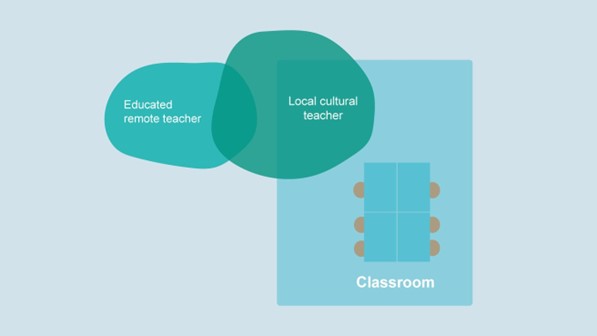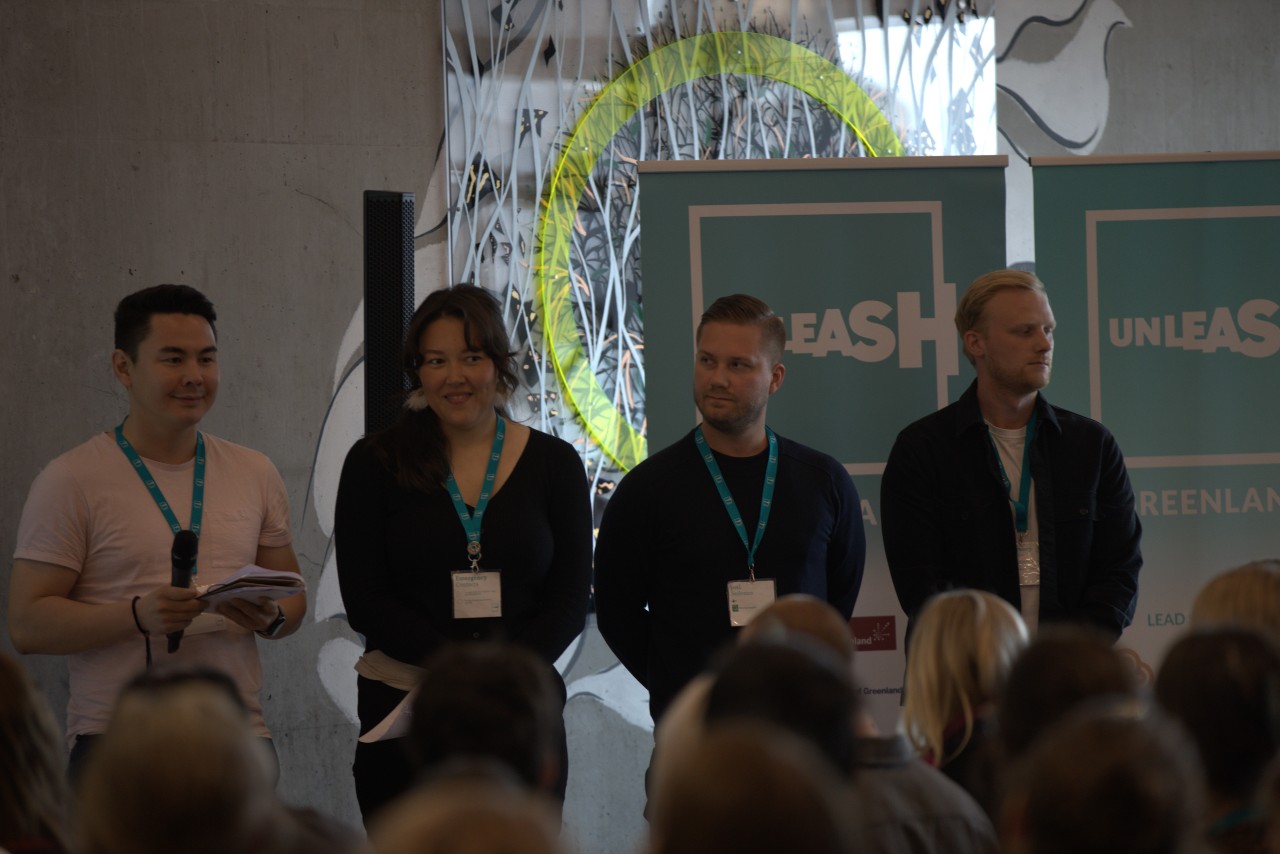SDG3: Good Health & Wellbeing (mental health)
Dual Model of Hybrid Teaching to support the mental health of Greenlandic youth.
In many smaller settlements and villages, primary school is available only for the first two steps. Children must therefore travel to larger towns to complete their schooling, typically after 7th grade.
Alee Alee was the winner of the most innovative solution with a 50,000 DKK prize!
The problem
Each year, hundreds of children have to move away from their families to complete their primary schooling and are accommodated in a pupils’ home belonging to the school they attend.
Research among various indigenous peoples shows that residential schooling causes severe mental issues that affect even the coming generations. As the influence of parental attendance has shown to be particularly strong among youth ages 12-14, children having to leave their homes at this age are particularly fragile.

Teacher teams prevent children from leaving home
Our solution is to introduce an optional dual model of hybrid teaching where the local teacher in a settlement is joined remotely by a teacher with the required competencies to educate the children in question, thus allowing the children to stay at their home settlements and finish their primary education.
While remote teaching has already been used across the globe, results vary. Our solution relies on a large body of international research and combines the best practices in the form of a co-teaching solution that integrates the benefits of high-quality teachers, presence of a trusted adult figure and modern technology.

Team Alee Alee (NUKIGA’s graphics designer Sika Filemonsen was part of the team). Congratulations on the prize of most innovative solution to the entire team!
Better mental health
The key impact of our solution is related to maintaining the mental health of the children in this age group. As a consequence, the overall health of the population is improved as a root cause contributing to intergenerational health issues are mitigated.
The dual model of hybrid teaching also improves learning results as well as both the rural teachers’ (cultural teacher) and remote teachers’ pedagogical capabilities thus improving the general level of education in the whole country.

